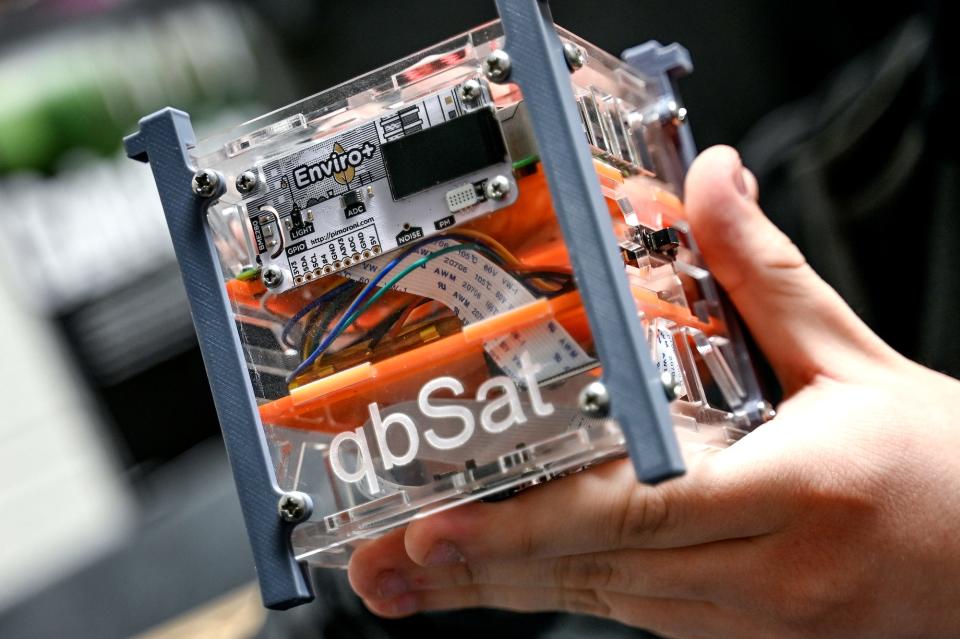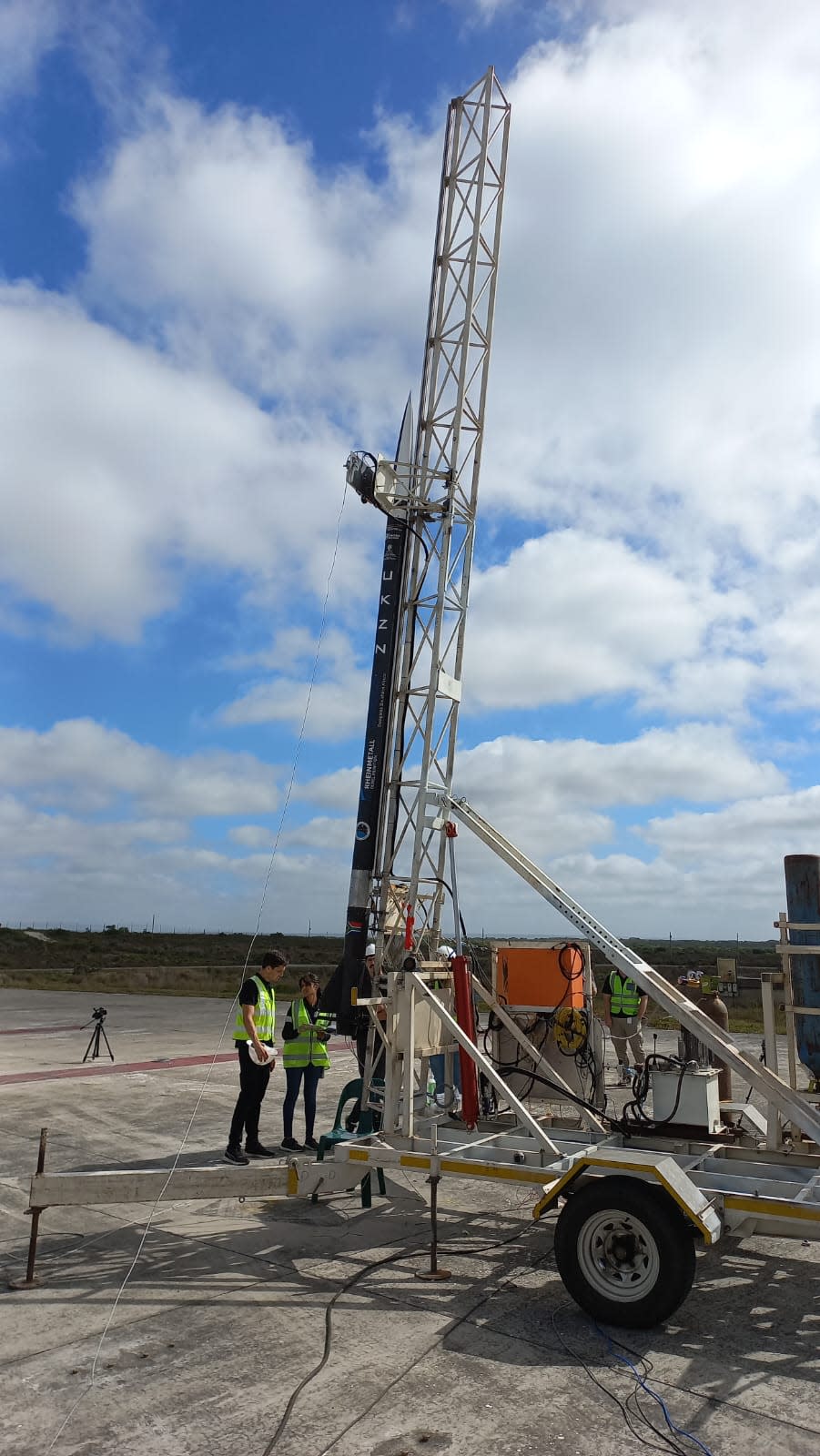Stockbridge students' satellite crashes, two more 2023 flights planned
STOCKBRIDGE — A small satellite built by Stockbridge Junior/Senior High School students briefly made its way toward space on an experimental rocket before splashing into the Indian Ocean about a week ago.
The makers' hopes are still sky-high with two more planned flights for their satellites this year: A balloon flight in April and another rocket launch in May.
The downed satellite was launched from a Cape Town, South Africa, launchpad, along with satellites from four other schools in Cape Town; Atlanta; Princeton, New Jersey; and Upton, Massachusetts.
The small satellite, a 3.9-square-inch metal and plastic contraption called a CubeSat, had sensors to collect data.

The students are hoping their next attempts will launch their creation into space.
"One step closer to space," said Bob Richards, the teacher of a course, The Special Projects Lab, that has spent more than a decade on various high-tech designs.
Richards said his class gives students a chance to do advanced work and see themselves in a variety of careers, from farming to aerospace engineering. The workspace for students includes automated machines, 3D printers, pipes and wires, electronics, computers and the freedom to explore ideas. It is modeled after the Coastal Observing Research and Development Center at the University of South California-San Diego, which has worked with the class on many of their underwater expeditions.

The March flight was made in high winds, not optimal conditions, but went forward because the primary mission was to test a rocket, rather than launch the satellites, Richards said.
The satellites on the rocket were not recovered and are believed to have been destroyed when the rocket hit the Indian Ocean shortly after launch, Richards said.
The class had previously launched a satellite on a weather balloon.
The March rocket, which uses a more efficient hybrid fuel mix than solid fuel, was designed to test the payload integration hardware and power for the first time, Richards said.
The next flights include a balloon launch and another chance at a rocket launch and the class is already planning for next year, when they hope to launch yet another satellite during an April 2024 solar eclipse and an eventual orbital flight for the cube satellite.
Contact Mike Ellis on Twitter @MikeEllis_AIM or on Twitter @MikeEllis_AIM
This article originally appeared on Lansing State Journal: Stockbridge students' satellite crashes, two more 2023 flights planned

